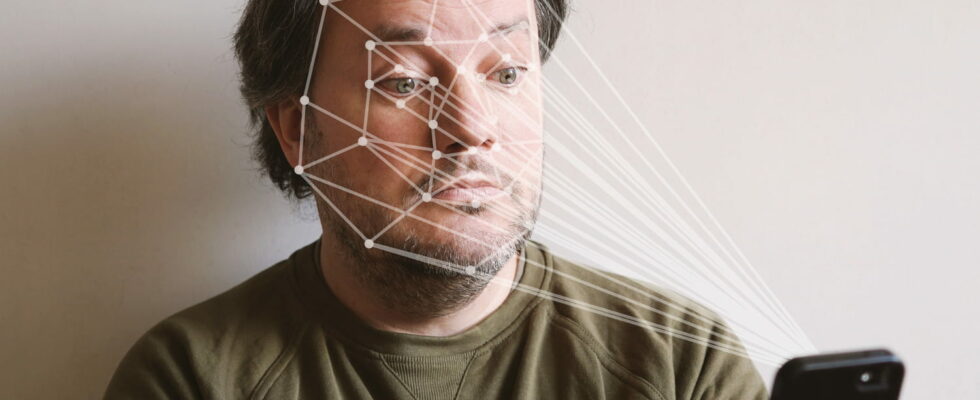From a simple photo of your face, hackers can now trick your phone’s facial recognition and access all your personal data, including your bank account.
Imagine a hacker who can steal your face to drain your bank account. It is no longer science fiction, but a terrifying reality with the emergence of new malware which has been targeting smartphones for several months in several countries around the world. And if it is currently targeting iPhone users, it could well be available in a version for Android which would target many more victims.
This spyware, called GoldPickaxe.iOS by cybersecurity experts, attacks your facial data stored on your iPhone, as well as your SMS messages. Its goal ? Carry out elaborate scams using deepfakes, these ultra-realistic fake videos that make it possible to make anyone say or do anything.
The malware works in several stages. Firstly, it steals your facial photos present on your phone. These photos are then sent to a “face swap” service using artificial intelligence. This service creates a very similar deepfake of your face, allowing the hacker to log into your bank account via facial recognition.
But to validate the transaction, the hacker needs a one-time code. This is where the second part of the Machiavellian plan comes in: the spyware also intercepts your SMS, especially those containing these codes sent by your bank. So, with your face stolen and your SMS code hacked, the hacker has everything he needs to empty your bank account in the blink of an eye!
For now, this attack appears to be focused on iPhone users in Asia Pacific. Hackers initially used Apple’s TestFlight service to distribute their malware, but are now resorting to social engineering. They send SMS or emails pretending to be official institutions, tricking victims into clicking on a malicious link or installing a fake app.
The good news is that this malware can only be installed if you click on a infected link or install an infected application. So be extremely vigilant with the messages and emails you receive, and be wary before clicking on links or installing applications, even if they appear to come from an official source. Never forget that cybersecurity is an ongoing battle. Stay informed of the latest threats and take simple actions to protect your personal data, in particular by activating double authentication on all your banking applications and other important services.
